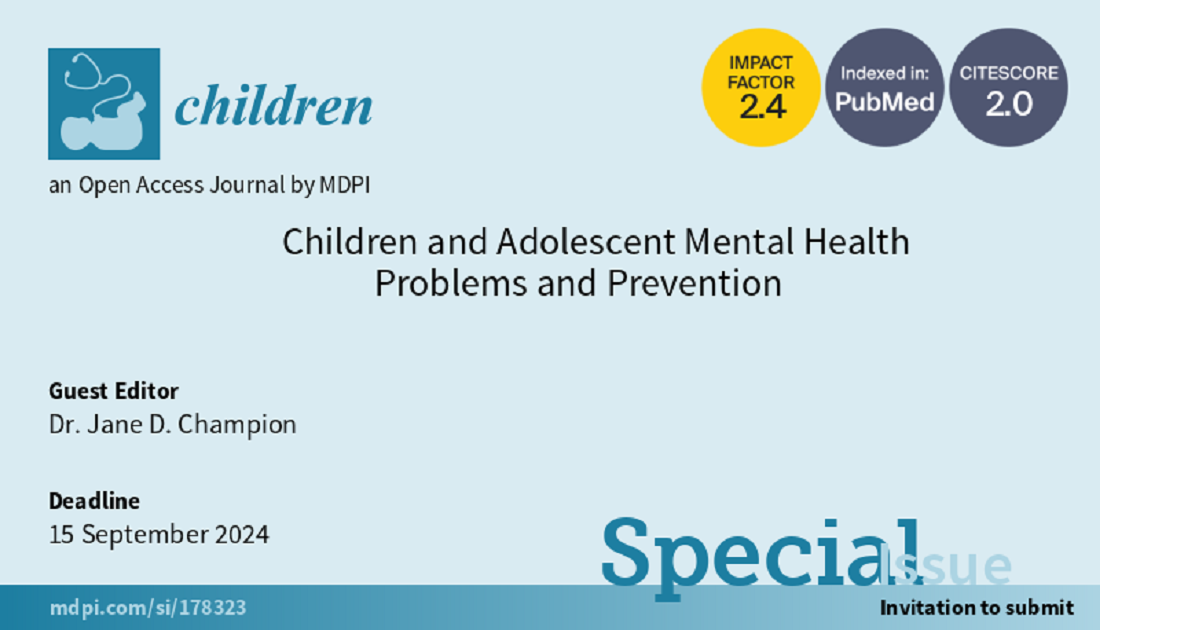Children and Adolescent Mental Health Problems and Prevention
A special issue of Children (ISSN 2227-9067). This special issue belongs to the section "Global and Public Health".
Deadline for manuscript submissions: 15 September 2024 | Viewed by 2553

Special Issue Editor
Special Issue Information
Dear Colleagues,
Psych/mental health during childhood significantly impacts morbidity and mortality later in life. Families living in communities experiencing health disparities often realize proportionately higher levels of stress due to the high unemployment rates, low educational opportunities, a high incidence of poverty and importantly the inaccessibility of PsychMental health care. These families are at increased risk for substance use, violence and associated psychological distress that occurs when attempts to cope with stress fail. These stressors place children affected by barriers of culture, poverty and remote access to PsychMental health care at a higher risk for these negative health outcomes. There is a need for additional investigation concerning mental health for these children.
The goal of this Special Issue is to discuss any aspects of children’s mental health in areas experiencing health disparities to enhance global understanding of these conditions by sharing knowledge about incompletely understood and controversial areas in this field.
We invite investigators to contribute original research articles, as well as review articles that will stimulate the continuing efforts to improve our understanding in this challenging field. As the title implies, new developments, unconventional, or inspirational contributions are also very encouraged.
Dr. Jane D. Champion
Guest Editor
Manuscript Submission Information
Manuscripts should be submitted online at www.mdpi.com by registering and logging in to this website. Once you are registered, click here to go to the submission form. Manuscripts can be submitted until the deadline. All submissions that pass pre-check are peer-reviewed. Accepted papers will be published continuously in the journal (as soon as accepted) and will be listed together on the special issue website. Research articles, review articles as well as short communications are invited. For planned papers, a title and short abstract (about 100 words) can be sent to the Editorial Office for announcement on this website.
Submitted manuscripts should not have been published previously, nor be under consideration for publication elsewhere (except conference proceedings papers). All manuscripts are thoroughly refereed through a single-blind peer-review process. A guide for authors and other relevant information for submission of manuscripts is available on the Instructions for Authors page. Children is an international peer-reviewed open access monthly journal published by MDPI.
Please visit the Instructions for Authors page before submitting a manuscript. The Article Processing Charge (APC) for publication in this open access journal is 2400 CHF (Swiss Francs). Submitted papers should be well formatted and use good English. Authors may use MDPI's English editing service prior to publication or during author revisions.
Keywords
- rural health
- mental health
- violence
- substance use
- poverty
- health disparities
- health care access






